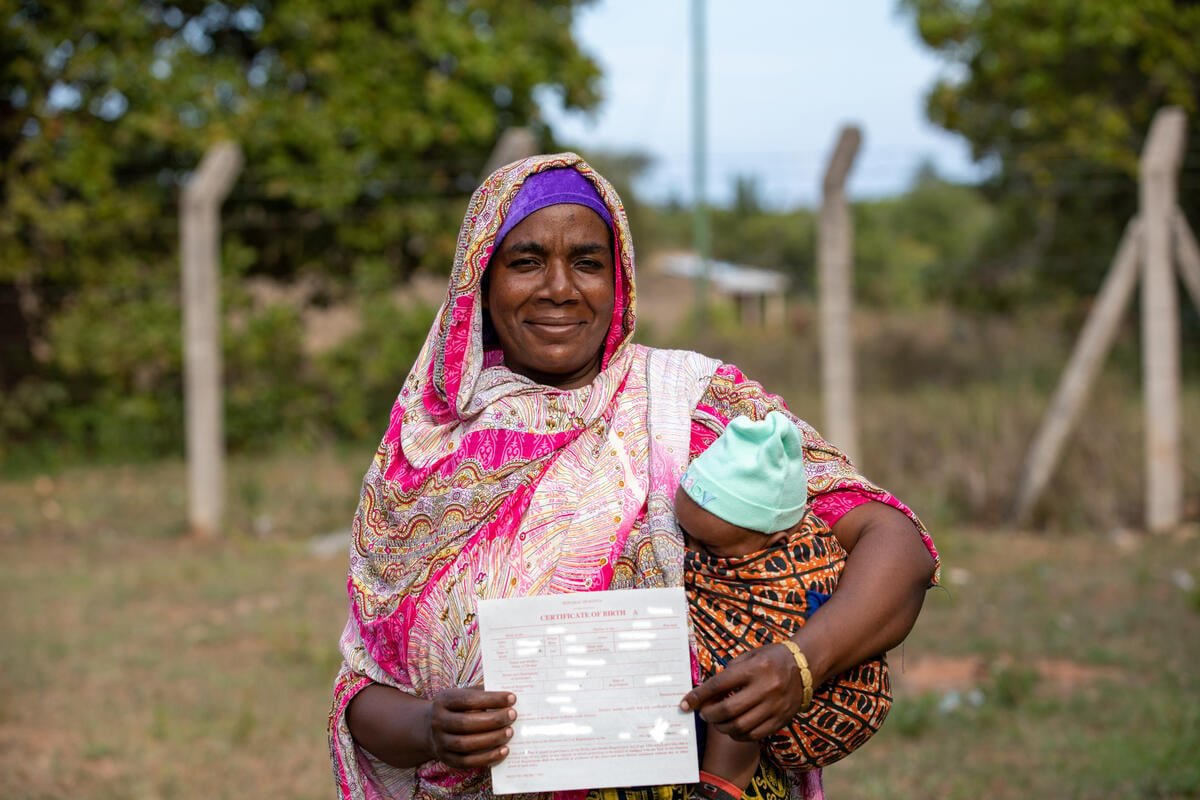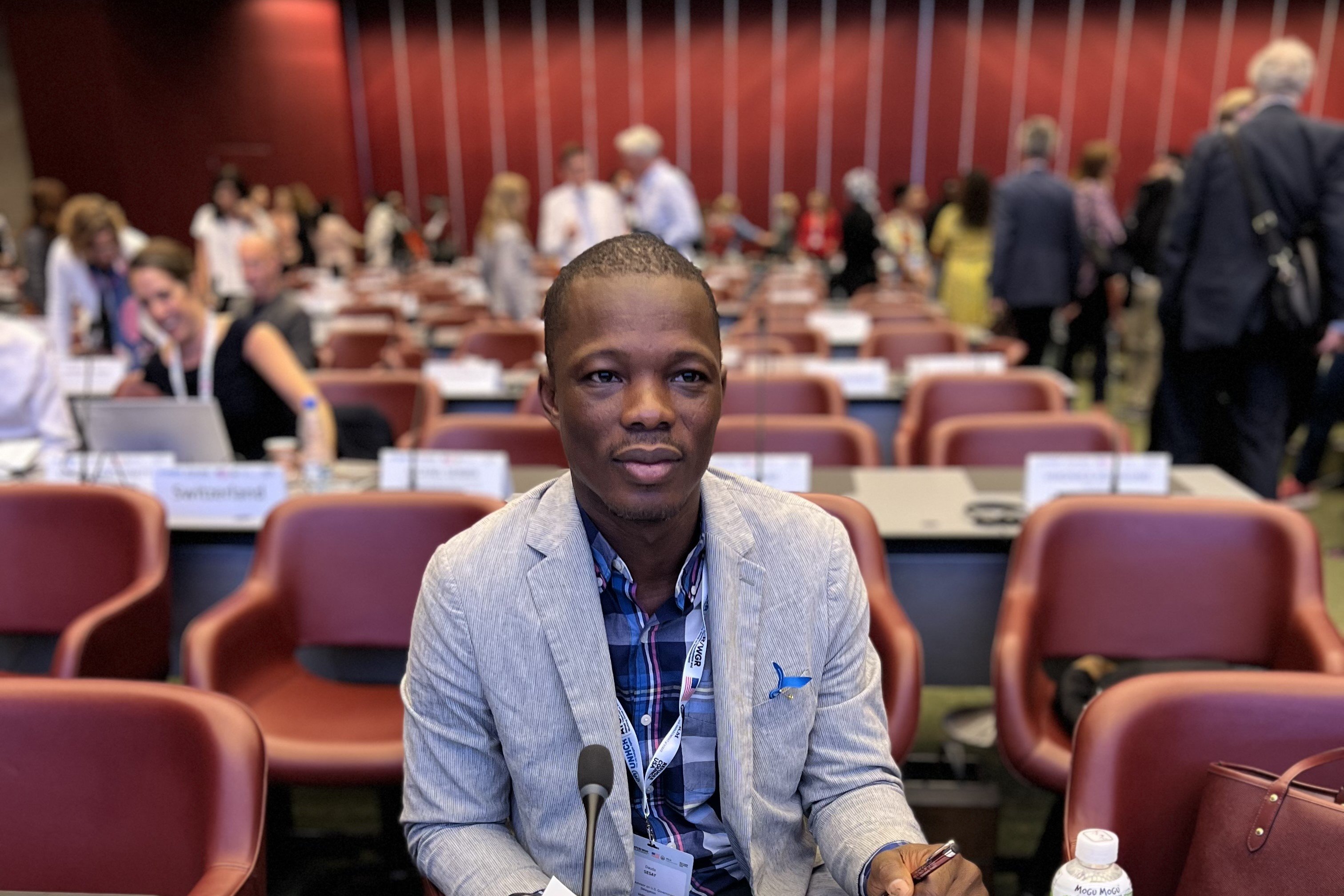UNHCR starts country-wide refugee census in Sierra Leone
UNHCR starts country-wide refugee census in Sierra Leone

FREETOWN, Sierra Leone, May 23 (UNHCR) - The UN refugee agency and the government of Sierra Leone have kicked off a large-scale registration exercise that will eventually enable refugees in the country to receive identity cards and enjoy better protection and assistance.
This week, UNHCR started the first phase of a census involving refugees in Sierra Leone's eight camps, as well as urban refugees in Freetown, Kenema and Bo districts. The agency distributed bracelets with serial numbers to all refugee adults and children, and began the process of counting and categorising them by family before issuing them with new ration cards with photographs.
All refugees were asked to bring registered dependants living with them, as well as documents received upon arrival in Sierra Leone. Those in Freetown had to report to registration centres closest to their homes, while others in UNHCR camps or urban areas in Bo and Kenema district had to register in their camps or in specified community buildings.
The census, which is gathering information on the number and bio-data of refugees in the country, will help UNHCR to plan programmes more effectively to ensure better protection and assistance to people of concern to the agency.
Eventually, the census results will help in the creation of valid individual records documenting each refugee's identity, family relationships and distinguishing characteristics. This should ensure accurate documentation and protection of refugees and prevent fraud or recycling among them. The exercise will end with the issuance of identity cards to all adult refugees in the country.
Prior to the census, a mass information campaign was conducted to inform refugees about its procedures and to ensure maximum participation. To clarify potential queries, UNHCR and its implementing partners also held meetings with refugees to explain the mechanism to address issues such as separated children, family reunification, and foot arrivals - refugees who arrived at the camps on foot and do not have documentation, unlike those who were picked up by UNHCR trucks at the border.
Radio announcements and jingles were also aired to help publicise the census.
The first phase was the most labour-intensive part of the exercise, mobilising some 800 people, including UNHCR staff from Freetown and field offices. Other UN agencies, such as the World Food Programme, are also part of this huge ongoing operation.
Sierra Leone hosts 75,500 Liberian refugees in eight camps, in urban settings and in the border regions.









